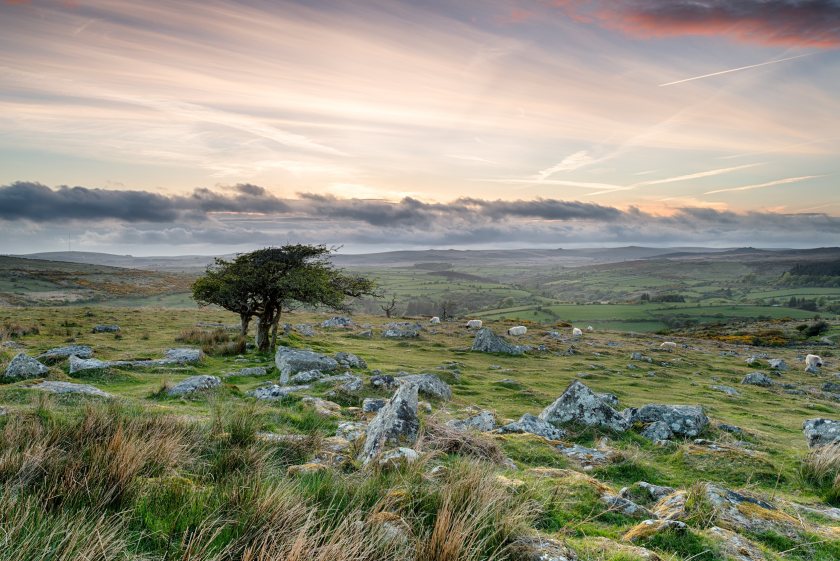
Wild Justice has launched High Court action against the Dartmoor Commoners’ Council (DCC) due to 'over-grazing' of Dartmoor’s commons, as part of a bid to bring heathland 'back into a favourable condition'.
In July, the wildlife campaigning group wrote to the DCC – the body responsible for managing livestock levels on the Dartmoor Special Area of Conservation (SAC).
The letter called for commoners to be ordered to reduce stock on all Sites of Special Scientific Interest (SSSI) making up the SAC.
Now Wild Justice has applied for a judicial review from the High Court, with the group hoping for a hearing in which DCC’s statutory purpose will be clarified.
The group said its legal challenge was brought because of responsibilities the DCC has to protect the habitats under the Dartmoor Commons Act 1985, among numerous others.
Dartmoor’s commons are designated a 'SAC' to protect four important habitat types: Northern Atlantic wet heaths with Erica tetralix; European dry heaths; Blanket bogs and Oak woods.
These habitats are found on the six SSSIs making up the SAC. As a statutory public body, Wild Justice said DCC "has a duty to take reasonable steps to further the conservation and enhancement of the commons".
The High Court application follows a request for information to the DCC under the Environmental Information Regulations 2004, which revealed DCC had not issued any limitation notices over stocking levels in the past 10 years.
In its letter to DCC, Wild Justice pointed to recent government data outlining the 'poor condition' of heath and Blanket bog in SSSIs at Dendles Wood, East Dartmoor, North Dartmoor, South Dartmoor, Tor Royal Bog and Wistman's Wood.
Wild Justice explained that Natural England's assessments showed grazing pressure "is a key reason for the unfavourable condition of 16 SSSI units covering 9,273ha, or 40%, of the SAC".
In a new statement issued on Friday (30 August), Wild Justice said: “DCC was set up with the duty and the powers to protect and enhance Dartmoor’s environment.
"The fact that all are agreed that Dartmoor is not in a good state shows that thing needs to change, starting with DCC’s reluctance to use the powers that parliament gave it.”
Wild Justice is being represented by solicitors Carol Day and Ricardo Gama in the environment team at law firm Leigh Day.
Carol Day said: “Our client is concerned about the parlous state of the Dartmoor commons and hopes this judicial review will clarify how DCC should be exercising its statutory duties to protect and enhance these nationally and internationally important habitats.”
